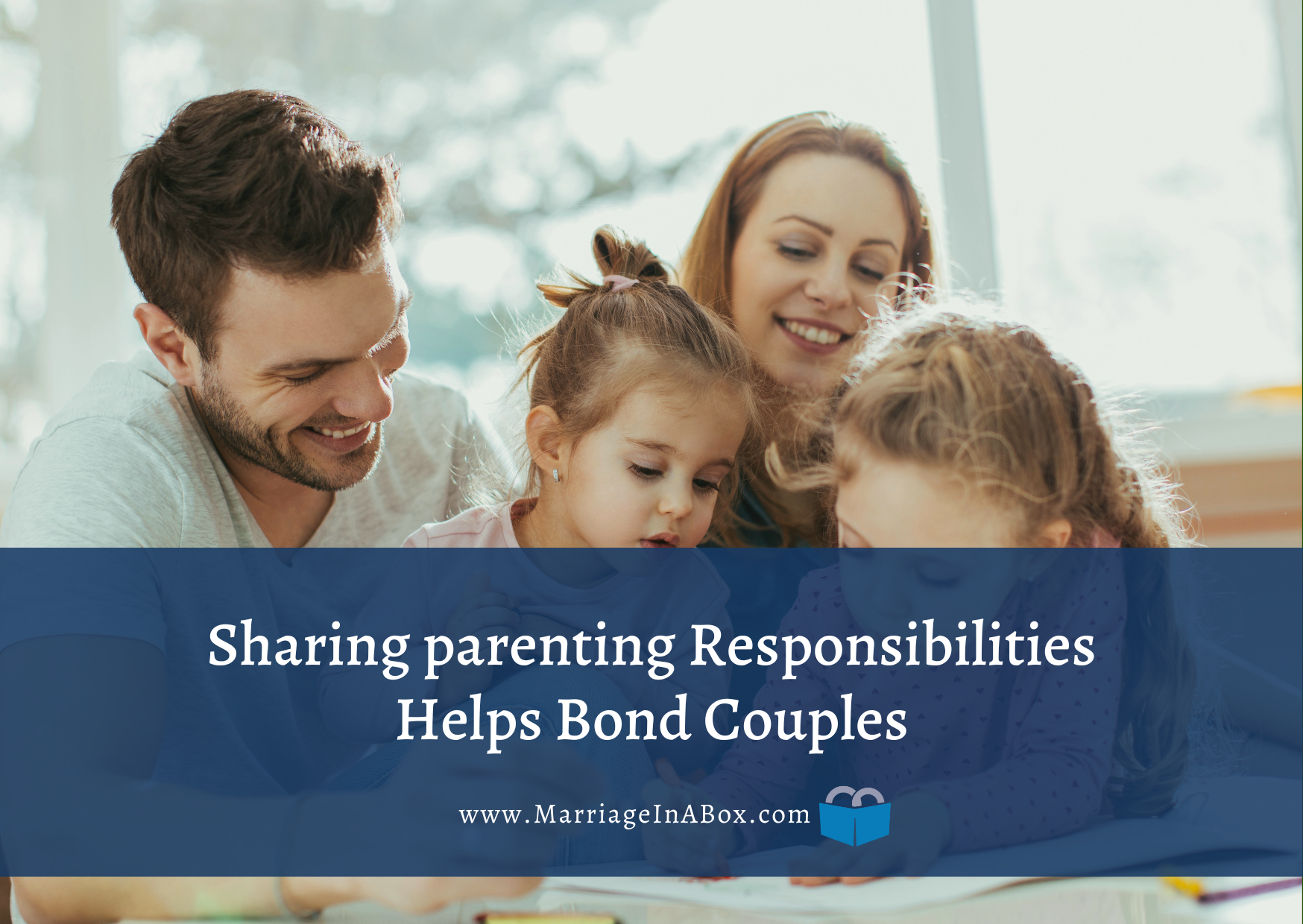Sharing Parenting Responsibilities Helps Bond Couples
Posted on

Partners learn to reconcile their differences and establish a new culture which strengthens their bond when they come together because every individual comes from a unique family system. Bringing together two people with different family values and family backgrounds does not come without challenges; therefore, couples should discuss and reconcile these differences before having children so that they both feel comfortable with parenting.
Three Parenting Styles
The Authoritarian Parenting Style
Authoritarian parents use strict control to discipline children with rigid rules enforced by threat or punishment. Authoritarian parents tend to be conservative and believe in traditional roles, values, and regulations to be followed without question, and misbehavior is unacceptable. The authoritarian parents' vision of the world is only black and white, right, or wrong, etc. Children may be looked upon with a critical eye and subjected to judgment, and open discussion with a give-and-take dialogue is not encouraged.
Praise and reward are believed to lead children into becoming 'too full of themselves' and cause them to stray off the good path. Kids with authoritarian parents typically are well-behaved and willingly obey authorities, do well in school, and avoid deviant behavior out of fear of punishment. They are not used to making choices or taking full responsibility for themselves and are also more prone to suffer from low self-esteem, anxiety, and depression. They may have more limited social skills than kids from authoritative or permissive families.
The Permissive Parenting Style
Permissive parenting, also called indulgent parenting, desperately focuses on maintaining a friendship with their child rather than being a parent. Many people believe permissive parenting is a curse of the modern age: The child is too much at the center of this parenting style, which uses reasoning, bribes, or manipulation to achieve some control. Permissive parents believe in the ability of the child to decide, make decisions, and act according to their desires and motives. Permissive parents believe in responding to the child's desires and accept children as equals, and they are included in decision-making and encouraged to communicate. These parents fear and tend to avoid confrontations and the use of power to shape and regulate their kids' behavior.
The effect of the permissive parenting style is that due to a lack of limits, the child has a sense of insecurity. The child may become dominating, impulsive, show problematic behavior, and do poorly in school. As these kids believe they are equal to adults, they are well equipped in dialogue, have high social skills, high self-esteem, and low levels of depression.
The Authoritative Parenting Style
Authoritative parenting is one of the three styles considered ideal by many people and child experts. Authoritative parenting uses firm control, high standards, fair reasoning, and positive reinforcement for good behavior. Authoritative parents are not restrictive as a preventive measure for bad behavior and strive towards letting their children live out their potential but within boundaries. They watch and impart clear standards for their children's conduct, and disciplinary methods are supportive rather than punitive, but crossing boundaries is not tolerated.
Permissive parents desire their children to be assertive, socially responsible, self-regulated, and cooperative. Authoritative parents feel that a child needs to have a degree of say; still, parents have the final word. Authoritative parents try to understand their children, teach them how to understand their feelings, problem solve, and follow independent but still norm-supportive practices. The effect of the authoritative parenting style on children (because of the use of praise and rules that are fair and carried out in a warm, caring manner) is that the child has learned that behaving and following the rules feels good and gets them positive attention.
According to research, kids of authoritative parents tend to do well in school and are self-confident and goal-oriented with well-developed social skills and emotional regulation.
How to Divide Childcare Responsibilities with Your Partner
- List your baby's needs.
Make a list of all the responsibilities involved in caring for the baby.
- Anticipate and communicate.
You must tell each other what you want and need.
- Create a schedule.
With your preferences in mind, you and your partner can schedule household responsibilities.
- Shed traditional expectations.
It's easy to fall back on safe traditional roles. But doing so can leave one parent resentful and the other in the cold.
- Share baby time.
Make room for two experts and work together. Mothers and fathers have different parenting styles, but parents sometimes have difficulty respecting and valuing those differences.
- Consider hiring help.
- Let go of perfection.
- Reward yourself.
Communicating and being flexible with your spouse is critical to parenting your kids. Couples want their children to have the best outcomes and bond as a couple and family. Consider using Marriage in a Box for helpful suggestions and guidance in parenting kids and working through being on the same parenting page as a couple.
Marriage In a Box is an excellent resource for simple tools and tips professionals use for relationship issues. You can set goals, earn rewards, and find marriage coaching on the site. Check out the available kit and sources of information online.
Download Our Worksheet And Discover Your Top Relational Desires!